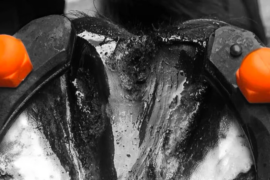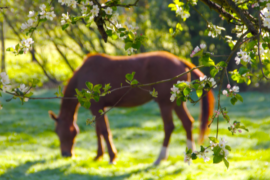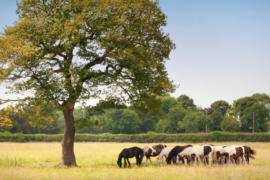Hip hip hurray – spring is nearly here! I can guarantee that is music to most equestrian’s ears, am I right? The question is, are you and your horse ‘spring ready’? From preparing paddocks to treating tack, there is an abundance of work that you can be doing to ensure you are stepping into spring in full force…
Paddock Maintenance
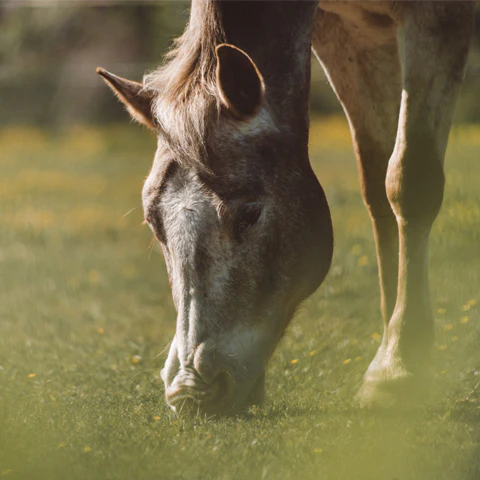
Our paddocks are quite often mistreated over winter and they often resemble a mud bath during the worst months… However, the fresh spring air and glorious sunshine have managed to clear up the muddy mess that once was!
Seeding
If your field is looking a little bare it may benefit from re-seeding, ensure you leave your horses off the grass until the seeds have become established.
Clear The Mess
Good grazing also requires you to regularly poo pick your field. Picking up your horse’s poo will encourage them to graze more evenly as well as reducing the burden of worms and associated problems. Removing droppings will also improve the environment and stop pesky flies from swarming and irritating your horses.
Shop poo pickers and get clearing this spring!
Fence Off
Paddock maintenance can also be achieved through rotational grazing. Rotational grazing allows your field to rest and restore without becoming overgrazed and bare. Try fencing sections of your field off and allowing them to rest for periods of time – this will encourage regrowth!
Take a look at our fencing options here.
Saddlery Checks
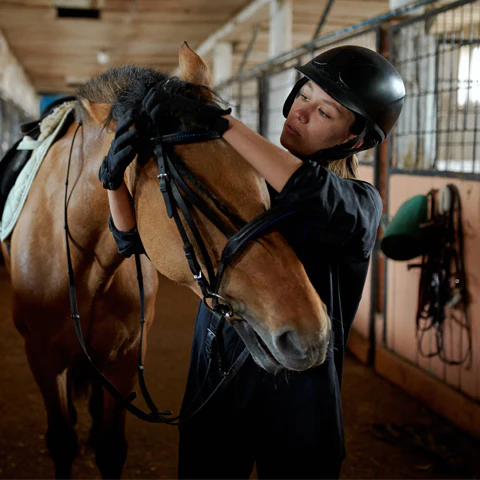
Saddlery checks are imperative when coming into spring… Your horse changes shape all the time, especially over the winter – they may lose muscle definition due to less work, longer periods in their stable or less competitions, all of these in turn may result in poorly fitting tack! Before you restart for the season it is a good idea to have your saddle checked by a professional to ensure optimum fit.
Worming Programmes
Worming can be a little bit of a minefield for horse owners… This is where we come in to help! Spring generally represents the emergence of new life, and unfortunately that also counts for worms too.
Small Redworm
It is recommended that you conduct egg count tests between March/April for small redworm – if your horses egg count comes back high then you should look into administering a wormer, we can advise you once you receive the results from your R&R Country Worm Count Test Kit. If your results are low you should continue and take another work count in approx. 12 weeks time.
Tapeworm
Although usually tested for and treated (if necessary) in Autumn, tapeworm should also be considered and tested for twice a year in medium to high risk horses. You can also test for tapeworm by administering a saliva test!
Test/Treat
Many horses will not have the burden of worms and will not require treating, but it is imperative to have the tests done to establish if there is a worm issue present in the first instance. Worm counting, or saliva tests for tapeworm, will stop unnecessary worming and limit the resistance some parasites will develop to the chemicals in the wormers.
If you need any advice, please contact our friendly team to discuss a worming programme that will suit you and your horses needs.
De-Clutter

Have you heard of the familiar term ‘spring clean’? Of course you have! Now is the perfect time to freshen up your yard and sort out the mass of clutter. Whether your grooming box is in need of an organise or you need to sort out the mass of headcollars in the tack room, we have plenty of props and tools to assist with your spring clean!
Organisation
Organise your space with our range of fixtures and fittings. Ensure you bridles are all hanging in a safe space and that your saddles are off the floor to keep them clean and pristine!
Deep Clean
Muck accumulates where you least expect it – why not put some elbow grease into your cleaning routine and get your stable area looking spick and span. Take a look at our cleaning tools here.


